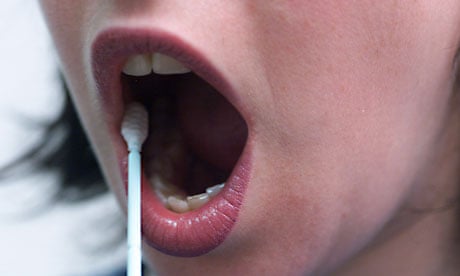The DNA of thousands of innocent children is being taken by police and stored on the national database, campaigners say on Monday, citing new figures.
Police have taken the DNA of 120,000 children in the last two years, according to figures obtained by the Howard League for Penal Reform.
A total of 4,000 children under the age of 13 had their DNA taken in 2011. Police can take DNA from anyone arrested and store it on the database even if they are not charged or convicted of a criminal offence. The Howard League says the figures show a child's DNA is being taken by the police once every 10 minutes.
It says since most people arrested are not charged, it means the DNA of tens of thousands of innocent children is being stored on the national database every year.
Police do not challenge the figures but say they include children whose DNA has been taken when they are victims of crime, or to rule them out from crime scenes, as well as when they are arrested as suspects.
The figures were compiled from freedom of information requests sent to forces in England and Wales.
A total of 53,973 samples were taken from children aged 10-17 in 2011. In 2010 the figure was 69,796.
Children aged under 10 fall below the criminal age of responsibility. The figures do not distinguish between children arrested on suspicion of committing a crime and those who have had their DNA taken in other circumstances.
The figure for the taking of child DNA samples by police is expected to decline as new laws come in later this year tightening the rules on when police can retain DNA profiles from child suspects.
A total of 6 million people have their samples on the national DNA database, which is one of the largest in the world. Of those, 156,000 are children aged 17 or below, according to government figures. Altogether, 1.25m samples on the database were taken from people when they were children.
The FoI request asked forces "how many children aged 17 years and under had DNA samples taken by the police and stored in 2010 and 2011?"
Frances Crook, chief executive of the Howard League, said: "When public money is tight and police forces are shrinking, it is disappointing to see valuable crime-fighting resources being wasted on taking DNA samples from thousands of innocent children while serious offences go undetected.
"Children who get into trouble with the police are usually just up to mischief. Treating so many like hardened criminals by taking their DNA seems excessive.
"We welcome the government's decision to stop storing innocent people's DNA indefinitely, but it remains unclear how this will affect the number of children having their DNA taken needlessly."
Amanda Cooper, who leads on the DNA database for the Association of Chief Police Officers, said: "DNA may be taken from children in a number of circumstances with the intention of preventing or detecting crime.
"These may be when a child has been a victim of crime, when police would take DNA to confirm an incident took place and check whether it can be linked to a perpetrator.
"Others will be as part of criminal investigations where a child is the suspect. DNA samples are also taken to conduct criminal paternity tests as part of sexual offence investigations. The taking and retention of DNA from people of all ages is set out clearly under law."
The figures show four instances of police taking DNA of children below the age of criminal responsibility. One child was less than a year old; another was two. The forces concerned, Thames Valley, Avon and Somerset and Gloucestershire, say the samples were not taken because the children were suspected of crimes.
Stuart Jeffries, of Avon and Somerset CID, said: "We took DNA from a five-year-old girl because she was the victim of a serious sexual assault and we believed her sample would help us convict her attacker. The sample has been destroyed.
"We only take DNA from children under 10 in serious cases and only where they have been the victim."
